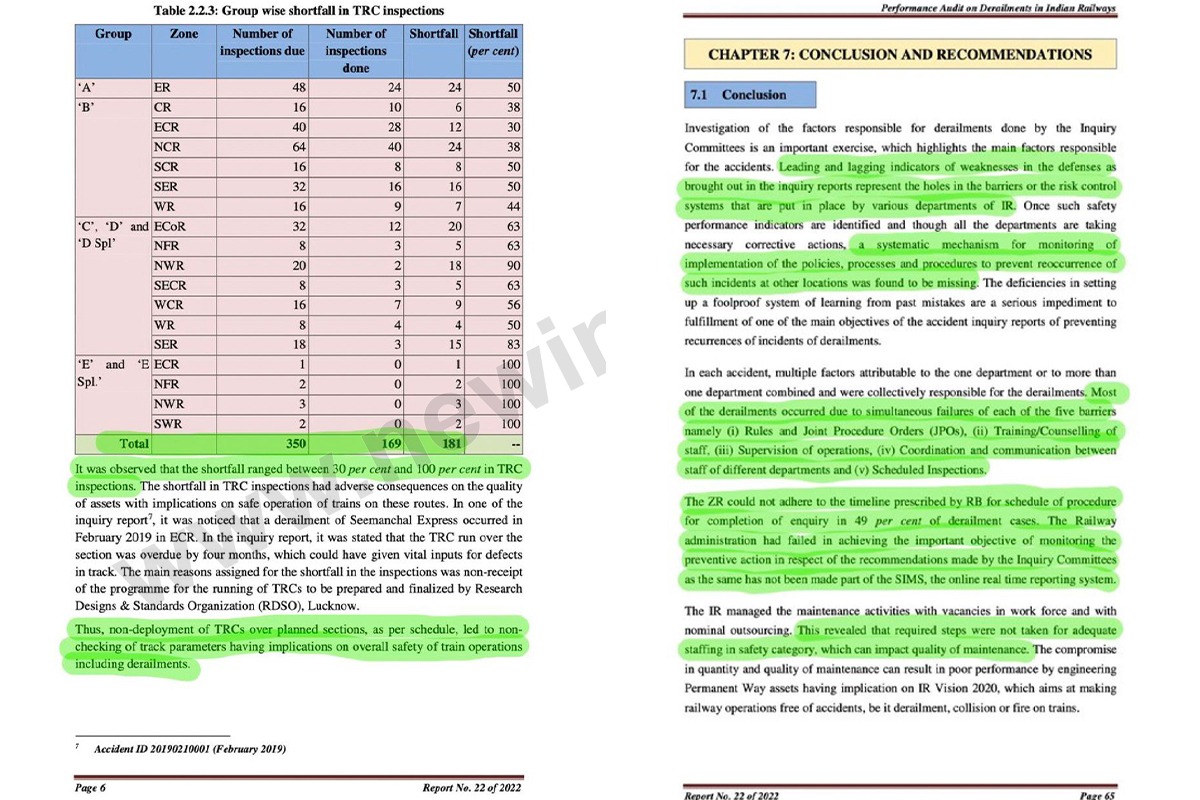NEW DELHI: The tragic train accident in Odisha’s Balasore, which claimed nearly 300 lives and injured around 400 others, has turned the nation’s attention to the poor state of the Indian Railway.
A recent report titled ‘Performance Audit on Derailment in Indian Railways’, tabled in parliament in December 2022, sheds light on the factors contributing to such mishaps. It reveals that nearly three out of four consequential train accidents were caused by derailments.
Conducted by the Comptroller and Auditor General of India (CAG), the audit report points to the maintenance of tracks as the major factor responsible for derailments.
ALSO READ: Coromandel Express wrongly entered goods train track: Report
It raises concerns about the declining allocation of funds for track renewal works over the years, with even the allocated funds not being fully utilized. The report further highlights a significant shortfall in mandatory track safety inspections, with only 181 out of the required 350 inspections being conducted. This means that over 50 per cent of compulsory track safety inspections were neglected.
Among the total of 217 accidents recorded in between 2017 and 2021, a staggering 75 per cent were due to derailments. An additional 211 accidents were attributed to signal failure, emphasizing the need for comprehensive reforms in safety measures and maintenance practices.

ALSO READ: HOW IT HAPPENED: Balasore train accident explained
The inquiry reports examining these accidents have identified weaknesses in the defense and risk control systems implemented by various departments of the Indian Railways. The simultaneous failures of five barriers, including rules and joint procedure orders, training and counseling of staff, supervision of operations, coordination and communication between different departments, and scheduled inspections, have been found to be the primary causes of most derailments.
Another critical issue highlighted in the report is the management of maintenance activities within the Indian Railways, which has been operating without sufficient workforce relying on a nominal outsourcing, indicating inadequate staffing in safety categories. This compromise in quantity and quality of maintenance can lead to poor performance by engineering assets, which poses significant implications for the safety of train operations and the vision of making railway operations accident-free.
ALSO READ: Ashwini Vaishnaw wrongly trolled? Kavach only implemented in South Central Railway
The report specifically mentions the shortfall of Track Recording Cars (TRC) inspections, with only 169 out of 350 inspections being conducted. The non-deployment of TRCs over planned sections, as per the schedule, has resulted in the neglect of track parameter checking, further compromising the overall safety of train operations, including the occurrence of derailments.
In response to the tragedy, railway minister Ashwini Vaishnaw has announced the formation of a high-level committee to investigate the collision and identify the causes behind it.
At around 7 pm on Friday, Coromandel Express, heading to Chennai from Kolkata met with a major accident involving two other trains at Bahanaga station in Balasore district.

















